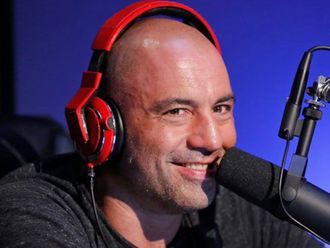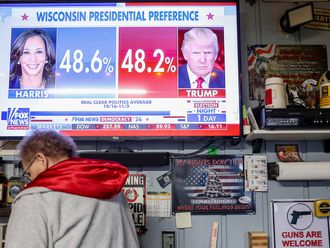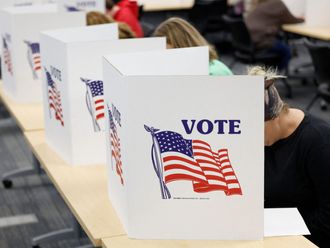Washington: Inside the long-awaited package, six pages of government paperwork drily affirmed Carol Tapanila’s anxious request. But when Tapanila slipped the contents from the brown envelope, she saw there was something more.
“We the people ...” declared the script inside her US passport — now with four holes punched through it from cover to cover. Her departure from life as an American was stamped final on the same page: “Bearer Expatriated Self.”
With the envelope’s arrival, Tapanila, a native of upstate New York who has lived in Canada since 1969, joined a largely overlooked surge of Americans rejecting what is, to millions, a highly sought prize: US citizenship.
Last year, the US government reported a record 2,999 people renounced citizenship or terminated permanent residency” most are widely assumed to be driven by a desire to avoid paying taxes on hidden wealth.
The reality, though, is more complicated. The government’s pursuit of tax evaders among Americans living abroad is indeed driving the jump in abandoned citizenship, experts say. But renouncers — whose ranks have swelled more than fivefold from a decade ago — often contradict the stereotype of the financial scoundrel. Many are from very ordinary economic circumstances.
Some call themselves “accidental Americans,” who recall little of life in the US, but long ago happened to be born in it. Others say they renounced because of politics, family or personal identity. Some say signing away citizenship was a huge relief. Others recall being sickened by the decision.
At the US consulate in Geneva, “I talked to a man who explained to me that I could never, ever get my nationality back,” says Donna-Lane Nelson, whose Boston accent lingers though she’s lived in Switzerland 24 years. “It felt like a divorce. It felt like a death. I took the second oath and I left the consulate and I threw up.”
When Americans do hear about compatriots rejecting citizenship, it’s more often people keeping their US citizenship and dropping that of another country.
Last year, Texas Senator Ted Cruz acknowledged the Canadian citizenship he was born to, but said he would renounce it. In 2012, Representative Michele Bachmann, Republican-Minnesota, saying she was “100 per cent committed to our United States Constitution,” announced she was giving up Swiss citizenship gained through marriage.
One of the few times rejected US citizenship has gotten significant ink was Facebook co-founder Eduardo Saverin’s 2011 decision to turn in his American passport after moving to Singapore. Savarin likely avoided millions of dollars in taxes by doing so shortly before Facebook’s initial stock offering.
Other wealthy Americans also have relinquished US citizenship. Denise Rich, the ex-wife of pardoned trader Marc Rich, expatriated in 2012 and lives in London. Last fall, singer Tina Turner, a resident of Switzerland since 1995, relinquished her US passport.
But Saverin’s decision, in particular, hit a political nerve, along with scandals surrounding UBS and Credit Suisse, which were caught matching wealthy Americans with offshore accounts.
In recent years, federal officials have stepped up pursuit of potential tax evaders, using the Foreign Account Tax Compliance Act which requires that Americans overseas report assets to the IRS or pay stiff penalties. Those trying to comply complain of costly fees for accountants and lawyers, having to report the income of non-American spouses, and decisions by some European banks to close accounts of US citizens or deny them loans.
But some of those surrendering citizenship say their reasons are as much about life as about taxes, particularly since the US government does not tax Americans abroad on their first $96,600 (Dh354,811) in yearly income.
Decisions to renounce “are driven by a whole range of emotional considerations. ... You’ve got anger, you’ve got fear, you’ve got a strong sense of indignation,” said John Richardson, a Toronto lawyer who advises people on expatriation.
“For many of these people, this is not a tax issue at all.”
Even some who acknowledge tax worries say decisions to renounce are far more complicated than a simple desire to avoid paying.
Peter Dunn, born in Chicago and raised in Alaska, moved to Canada to pursue a graduate degree in theology. He met his wife, Catherine, and they made Toronto home when her work as one of the owners of an aviation maintenance firm made her the breadwinner.
Dunn remained an American. But he was alarmed by a change in US law requiring those with more than $2 million in assets to pay an exit tax if they gave up citizenship. He didn’t have $2 million. But his wife was doing well enough that he imagined one day they could get there. The idea of the US government taxing his Canadian wife’s money didn’t seem right.
“When I learnt about that, I decided that to protect my wife, I better expatriate,” he says.












